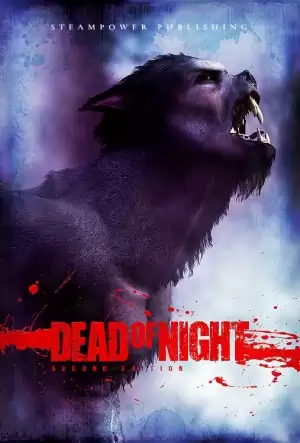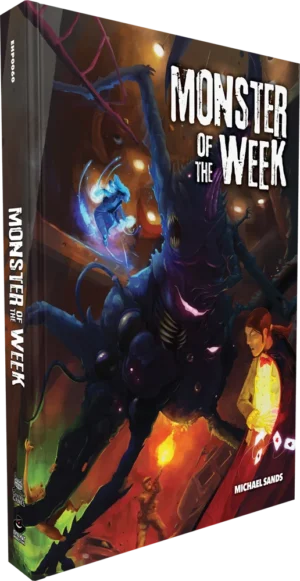Dead of Night Horror; Dark; Psychological; Narrative-Driven; Survival; Investigation; Rules Lite
Dead of Night is a 'rules-lite' tabletop roleplaying game designed for quick, narrative-driven horror experiences. It emphasizes classic horror tropes, character survival, and investigation, targeting players who enjoy campfire tales, slasher movies, and B-movie horror. The core mechanics revolve around opposed attribute pairs, Survival Points, and a unique Tension system, offering a customizable and replayable experience. It distinguishes itself through its focus on genre emulation, ease of play, and GM support, making it accessible for both new and experienced roleplayers looking for a fast-paced, thematic horror game.
Theme and Setting
Dead of Night focuses on recreating the atmosphere of classic horror films, campfire stories, and B-movie scares. The setting is typically modern, mirroring common horror movie locations such as small towns or isolated locales. The primary theme is survival against overwhelming odds, where players take on the roles of ordinary individuals facing terrifying antagonists, ranging from slasher villains and supernatural creatures to psychological threats. The game encourages the embrace of horror movie cliches, even rewarding players for enacting them.
The game mechanics and scenario suggestions aim to evoke a sense of dread and tension, often involving themes of isolation, paranoia, and the unknown. Scenarios are designed to be quickly adaptable and loosely structured, allowing for player-driven narratives within the horror genre framework.
Core Mechanics and Rules
Dead of Night employs a simple, rules-lite system designed for fast character creation and gameplay. Characters are defined by four opposed attribute pairs (e.g., Identify/Obscure, Pursue/Escape), with a limited number of points to allocate between each pair. Specializations can further define characters by enhancing specific abilities, although at the cost of reducing the attribute scores.
The game uses 2d10 for resolution, with players attempting to meet or exceed a target number. Conflict checks involve rolling against an opponent's attribute, adding an element of direct opposition. A unique rule prevents players from rolling dice consecutively in opposed checks, ensuring everyone at the table is involved. Combat is resolved through similar checks, with the loss of Survival Points indicating shock, injury, or loss of sanity.
Survival Points also function as a meta-game currency, allowing players to influence the narrative, reroll checks, or gain other advantages. The GM utilizes Tension points to control the scene, affecting dice rolls and introducing more intense elements. These mechanics are intended to be flexible and easily modified to suit different play styles and horror subgenres.
What Makes It Unique
Dead of Night distinguishes itself from other horror RPGs through several key features:
- Emphasis on Genre Emulation: The game actively encourages and rewards players for embracing horror movie tropes and clichés, creating a self-aware and often humorous experience.
- Rules-Lite Design: The simple mechanics and fast character creation make it accessible for both new and experienced roleplayers, allowing for quick pick-up-and-play sessions.
- Tension System: The use of Tension points provides the GM with a tool for managing the atmosphere and pacing of the game, creating a sense of escalating dread and horror.
- Variety of Play Styles: Offers different modes, such as playing as monsters or victims, with or without a designated GM.
- Portable and Adaptable: The small book size and streamlined rules make it easy to take the game anywhere, while the flexible mechanics allow for customization and adaptation to various horror subgenres.
Target Audience and Player Experience
The target audience for Dead of Night is broad, encompassing both seasoned roleplayers seeking a quick, rules-light horror experience and newcomers looking for an accessible entry point into the genre. The game is designed for players who enjoy collaborative storytelling and are familiar with horror movie tropes and clichés. The game caters to players who prefer narrative-driven gameplay over complex mechanics.
The player experience is intended to be tense, engaging, and often humorous. The emphasis on survival and player agency encourages strategic decision-making and creative problem-solving. The Survival Points and Tension systems provide players and the GM with tools to shape the narrative, creating a dynamic and unpredictable experience. While characters are not superhuman, players can influence events through clever use of resources and embracing the tropes of the genre.



